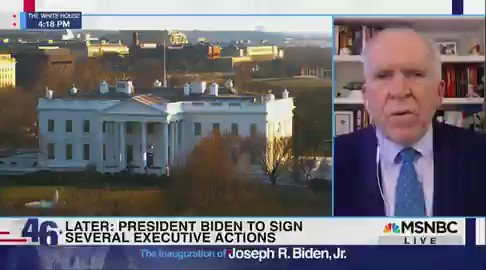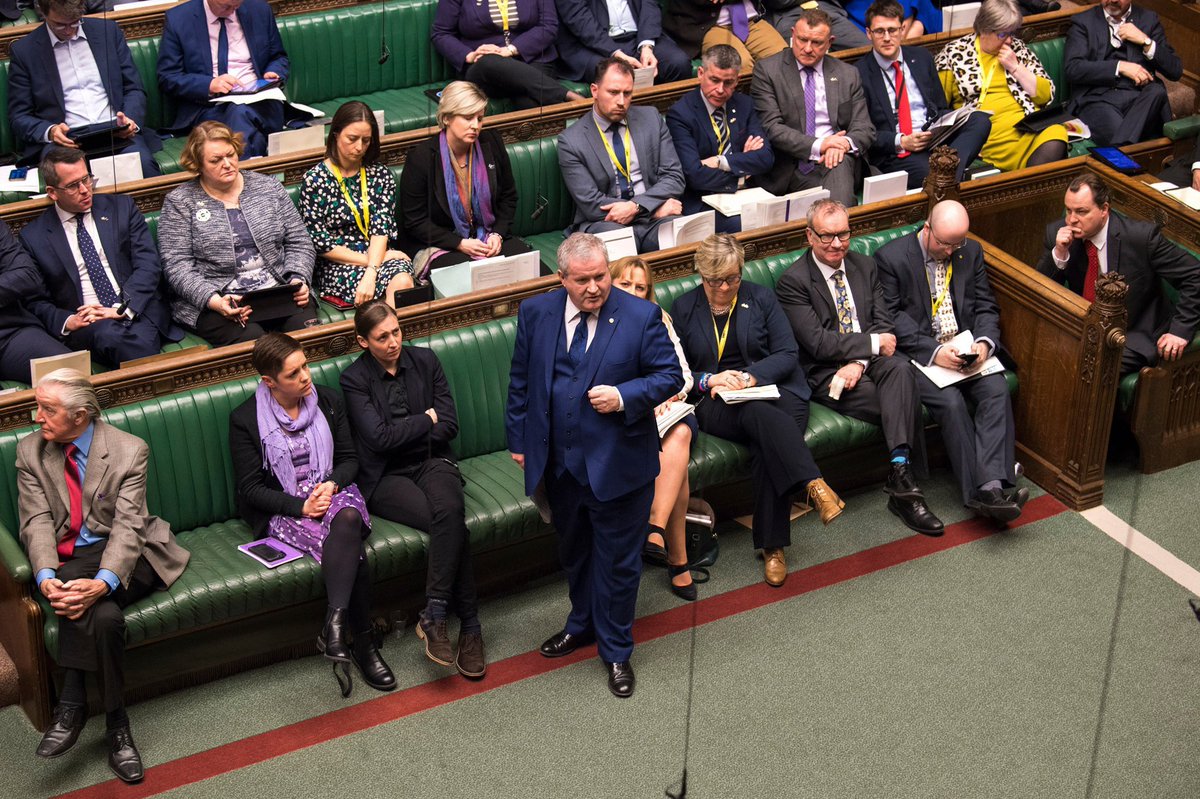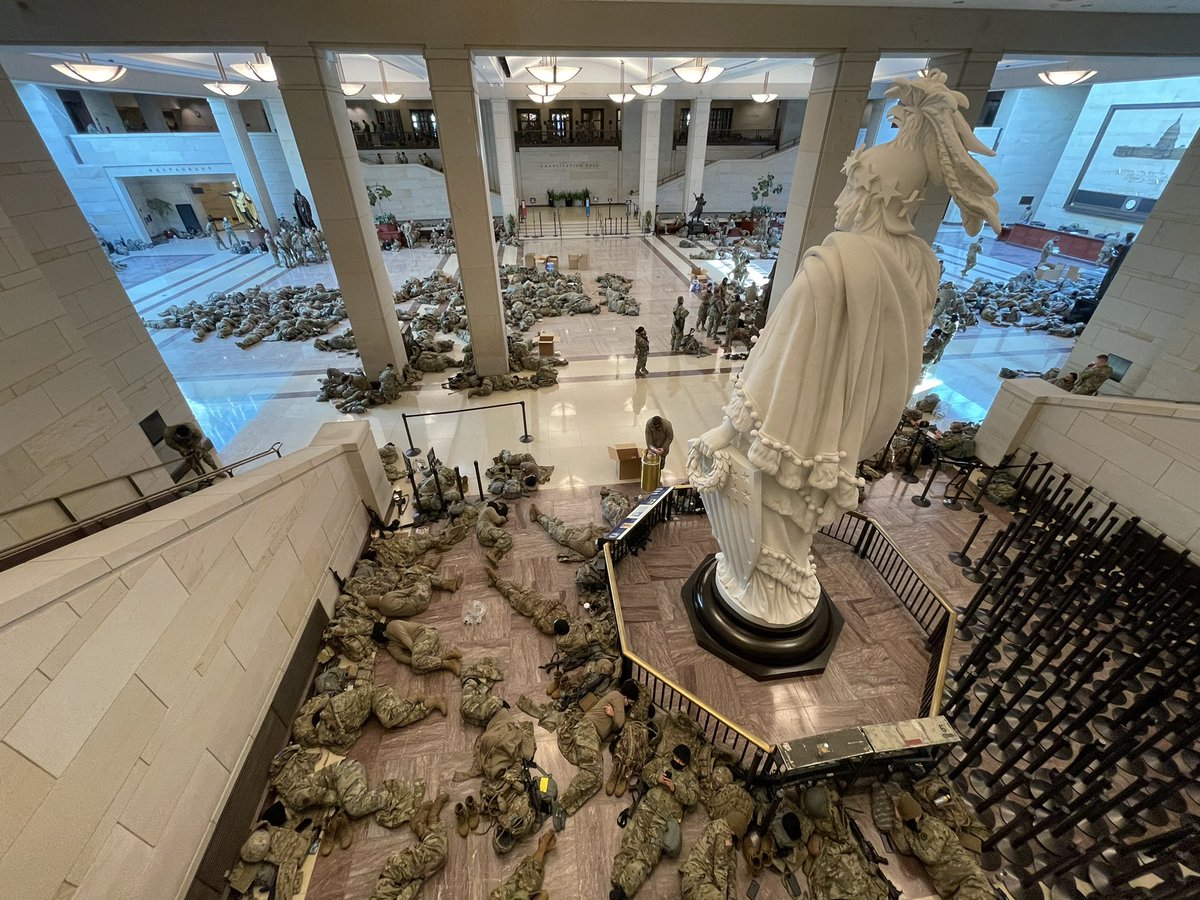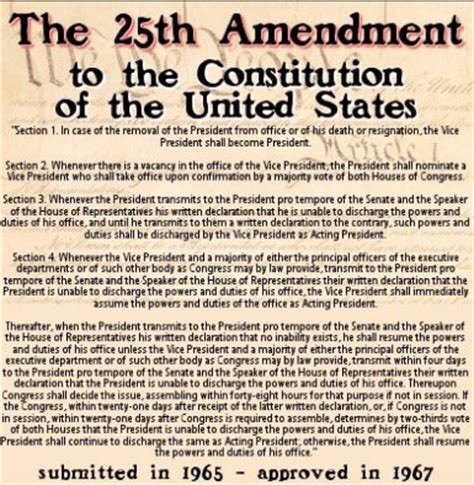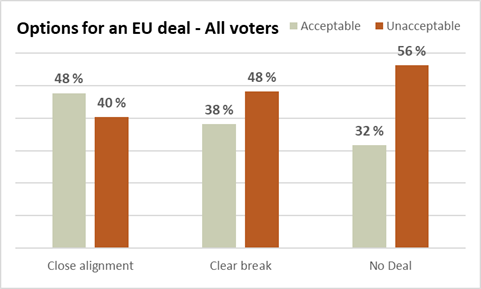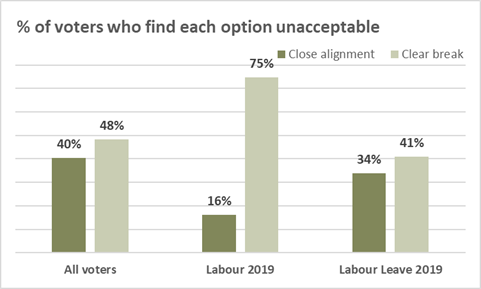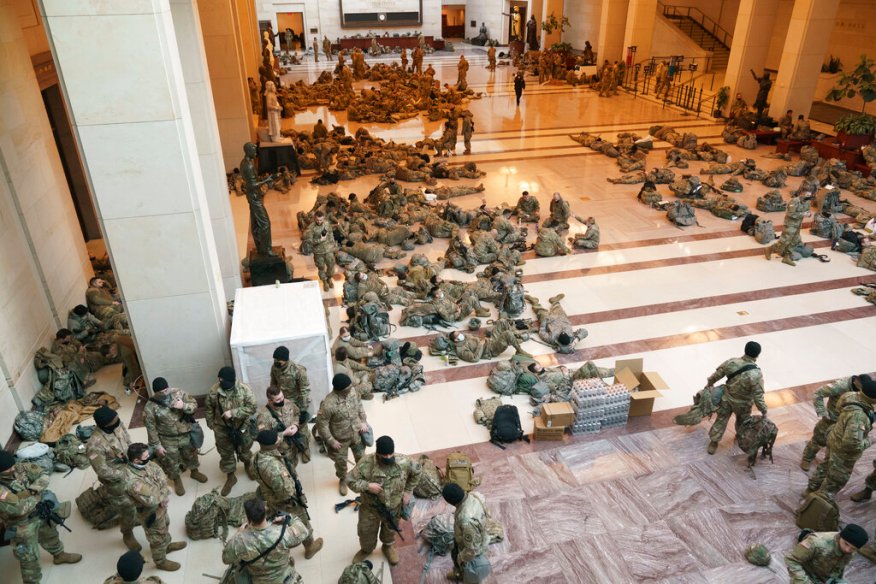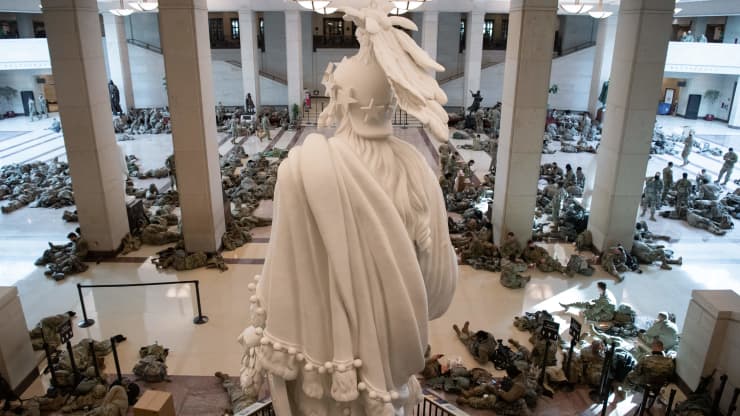Categories Government

2/ Here are some additional images of #BullhornLady that we’ve pulled from various videos taken during the Jan. 6 insurrection:

3/ This video from outside the Capitol looks to be taken before she acquired the bullhorn. At around 1:50 in the clip, you can see her spryly climb up and into a recently shattered window.
https://t.co/gVt9FdVb80

4/ It’s possible that this early entry into the building is where she got the lay of the land that she would later use when shouting instructions to those inside the building.
5/ In this short clip, you can see a woman that appears to be #BullhornLady approaching the shattered window on the left and being handed the bullhorn:

"The empire needs both faces. Without the murder face, it could not exist as an empire. Without the grinning face, the public would never consent to the murder
The Biden inauguration event is going to be a star-studded celebration spanning an unprecedented five days, a giddy orgy of excitement at a murderous oligarchic empire having a new face behind the front desk after promising wealthy donors that nothing will fundamentally change.

This comes at a time when Americans are now reporting that they trust corporations more than they trust their own government or
when pundits are gleefully proclaiming in The New York Times that “CEOs have become the fourth branch of government” as they pressure the entire political system to smoothly install
\u201cCEOs have become the fourth branch of government,\u201d said Jonathan Greenblatt, chief executive of the Anti-Defamation League. \u201cThey\u2019re trying to hold the country together.\u201d https://t.co/V8x34qbhlh
— Rania Khalek (@RaniaKhalek) January 15, 2021
when the leading contender for the Department of Justice's Antitrust Division is an Obama holdover who went from the administration to working for both Amazon and
The Prospect and The Intercept have learned that Renata Hesse, a former Obama Justice Department official who then went on to work for Google and Amazon, is a leading contender to head up the DoJ Antitrust Division.
— David Dayen (@ddayen) January 15, 2021
But American institutions are strong in significant part because we don't let politicians act like Donald Trump, particularly not when they get close to the white house. It's not a law of nature; it's something we're actively doing. If we stop doing it, we lose our immunity.
— Megan McArdle (@asymmetricinfo) January 8, 2021
My right-wing followers, of course, understand why this won't fly: America borrowing in dollars, and under US law rather than some neutral third country, is not a law of nature. People with money could easily decide it was too risky to make us dollar-denominated loans.
(Or at least, at any price we'd want to pay.)
What would make them decide this? The fastest way would be for America to borrow a metric crap ton of money, and then default or let inflation eat away the value of our loans so we're repaying pennies on the dollar in real terms.
And since the "America can't have Greek-style debt crisis" talking point is genreallly only uttered by people who are urgin gus to do exactly the sort of thing that make it more likely we'll have trouble borrowing money in dollars, this is just deeply, deeply silly.
I mean it would probably work for a while--as Adam Smith said, "There's a lot of ruin in a nation". I am prepared to concede that the natural stopping point of this binge might be quite a few years away. I only say there is some stopping point.
I've been thinking about Kansas 1854-59 for a while.
Let's be clear about what happens when political parties reject elections and democracy:
Violence & bloodshed.
Thread.
The die is cast for the Republican Party. It will be destroyed on January 6th in much the same way the Whig party was destroyed by the passage of the Kansas-Nebraska Act in 1854. The act unraveled the Missouri compromise and allowed for the westward expansion of slavery. 1/
— Steve Schmidt (@SteveSchmidtSES) January 3, 2021
2/ The Compromise of 1850 & the Kansas-Nebraska Act of 1854 undid the Missouri Compromise (see map), leaving the question of slave state/free state to voters in the territories, leading to local violence, disputed elections, & ultimately the Civil
3/ The Kansas-Nebraska Act opened what would become Kansas, Nebraska, the Dakotas, Wyoming, and Montana to a territory-by-territory vote on slavery vs. freedom.
Pro-slavery Missourians moved west into Kansas to vote for the westward expansion of
4/ Soon after 1854, Kansas became a local preview and a microcosm of the coming Civil War. Violence, intimidation & murder preceded these slave v. free local elections, mostly from the pro-slavery side, and pro-slavery forces used fraud to win.
5/ Missouri organized pro-slavery "Border Ruffians" to cross into Kansas, use violence and vote illegally. One estimate is that they added 5,000 illegal votes to the pro-slavery side to swing the elections. Congress investigated and found massive vote fraud.
I am working on it, lobbying ministers. There is a failure here amongst officialdom not to be ready with certification from Jan 1. It should be been simple, seamless and inexpensive. It's not rocket science. Needs addressing urgently @michaelgove @BorisJohnson
— Lance Forman (@LanceForman) January 25, 2021
But by the same token, the Brexit Party was at every point in the process demanding a walkout - which would have landed him with disruption worse than at present with tariffs that would have killed exports anyway.
At best, though, even if those "teething troubles" are resolved, food produce is still looking at an inspection rate of 20%, all at random, the the SPS paperwork, along with finding a responsible importer is a fixed feature of being outside the single market.
could and should have known this. It was in the Notices to Stakeholders. Moreover, he had the research facilities of the European Parliament at his disposal which he could have used for the benefit of his entire industry. So what was he doing with his time there?
None of what is happening at the border comes as any surprise to us because well in advance of the referendum we produced a plan, looking at the consequences of each option. The Brexit Party, despite its massive resources, elected not to do this kind of groundwork.
I received numerous questions regarding my yesterday’s post. Why regional transmission projects are always given priority over the development of indigenous generation, knowing that Afghanistan will remain dependent on imported power? What went wrong?
I have already described the disadvantages of relying on imported electricity in this thread👇.
The legitimate question we all have is, why did the Afghan government and international donors opt for bringing electricity from the neighboring countries?
THREAD
— Mohsin Amin (@MohsinAmin_) July 27, 2020
The electricity-exporting countries Uzbekistan, Tajikistan, Turkmenistan and Iran mostly sell their surplus electricity to Afghanistan. When they no longer have a surplus, they stop supplying.
The answer is not easy and includes a mix of bureaucratic, social, economic and political considerations. Since 2002, energy sector planning efforts have been undertaken by a number of international development partners.
This has allowed for significant levels of investment and expertise to be placed in the service of Afghanistan's power sector. At the same time, the role of the Afghan government has often been marginal, as a plethora of donors have pursued their own agendas and projects.
As a result, this has led to a lack of coordination, off-budget project financing, insufficient planning and prioritization of projects, and a process that has lent itself to wasteful spending and unmet goals.


